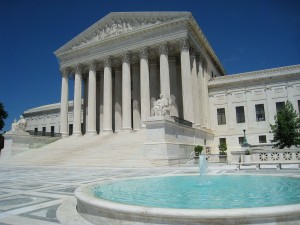Top Federal Crime Lawyer: Specialized Legal Defense for Federal Offenses
Debunking the Process of Federal Appeals: What You Need to Know
Navigating the detailed world of government allures can commonly feel like traversing uncharted waters for those unfamiliar with the procedure. Understanding the subtleties of appellate court territory, the complexities of filing a notification of allure, offering an engaging quick, and making a persuasive dental argument are crucial components that can substantially influence the end result of an instance. By unraveling the layers of complexity bordering government allures, people can gain a clearer understanding right into the devices that control this critical point of the legal system.
Recognizing Federal Appeals Refine
Diving into the detailed world of the federal charms procedure introduces a organized and systematic trip through the judicial system - phoenix federal crime appeal lawyers. Federal charms work as an essential mechanism for evaluating decisions made by reduced courts. Understanding this procedure is vital for anyone associated with lawful proceedings at the federal degree
The procedure generally starts with a party disappointed with a reduced court's ruling filing a notice of allure. This triggers an evaluation by a greater court, where a panel of courts evaluates the lawful debates offered by both events. Briefs detailing the legal reasoning behind each party's placement are sent, and oral disagreements may be heard to make clear intricate problems.
The appellate court's decision is based on a complete examination of the lower court's process and the arguments presented. When the appellate court reaches a choice, it can attest, reverse, remand, or change the reduced court's ruling, offering quality and finality to the lawful conflict.
Appellate Court Jurisdiction Explained

Appellate courts have territory over certain kinds of cases, usually those involving lawful errors, procedural concerns, or questions of legislation instead of factual disputes. The jurisdiction of appellate courts is generally outlined in statutes and legislations that control the court system. Comprehending appellate court territory is essential for events associated with the charms process as it identifies whether an instance is qualified for review and the extent to which the appellate court can interfere in the lower court's decision.
Filing a Notice of Allure
The initial step in starting the government charms process involves submitting a Notification of Allure with the ideal appellate court. federal wire fraud appeal lawyers. This vital paper formally notifies the court and the other events involved in the instance that the appealing event plans to look for a review of the lower court's choice. Submitting a Notification of Appeal is a rigorous procedural requirement that establishes the appellate procedure moving
When preparing the Notice of Charm, it is necessary to ensure compliance with the particular regulations and standards of the relevant appellate court. The paper must normally include details such as the situation name, the lower court's name, the date of the judgment being appealed, and a succinct statement indicating the premises for the appeal.
When submitting a Notice of Allure,Timeliness is of the essence. Missing out on the deadline for submitting this document can result in the charm being rejected, emphasizing the relevance of precise and prompt initiation of the charms procedure. It is suggested to look for legal guidance to navigate the complexities of submitting a Notification of Appeal efficiently.
Rundown and Oral Disagreement
In the appellate procedure, offering composed briefs and participating in oral debates play crucial roles in advocating for the appealing party's position before the appellate court. Briefs are comprehensive legal records that describe the events' disagreements, lawful authorities, and analysis supporting their positions. These composed submissions offer the court with a comprehensive understanding of the facts of the case, the relevant regulation, and why the appealing party believes the reduced court's decision ought to be overturned.
Adhering to the submission and evaluation of the briefs, dental arguments supply the celebrations an opportunity to further clarify their placements, deal with any inquiries the appellate courts might have, and emphasize crucial factors from their composed briefs. Oral debates are a chance for the attorneys to persuade the courts via spoken advocacy and feedbacks to queries from the bench.

Obtaining the Appellate Court Choice

Final Thought
Comprehending the appellate court jurisdiction, submitting a notification of allure, preparing briefs, and providing oral arguments are all important elements of this process. Ultimately, obtaining the appellate court choice can offer clearness and resolution to legal disagreements.
As we proceed from recognizing the federal appeals process to dissecting the intricacies of appellate court jurisdiction, a fundamental element comes to light pertaining to the authority and limits of these greater courts in the legal landscape. Appellate court territory refers to the range of cases that a certain appellate court has the power to review and choose upon. Unlike trial courts that listen to cases for the initial time, appellate courts are limited to reviewing choices made by lower courts. Comprehending appellate court jurisdiction is important for events entailed in the allures process as it determines whether an instance is qualified for evaluation and the extent to which the appellate court can intervene in the reduced court's choice.
Whether the appellate court affirms, turns around, or remands the lower court's choice, comprehending the effects of the ruling is important for all parties included in the appellate procedure.